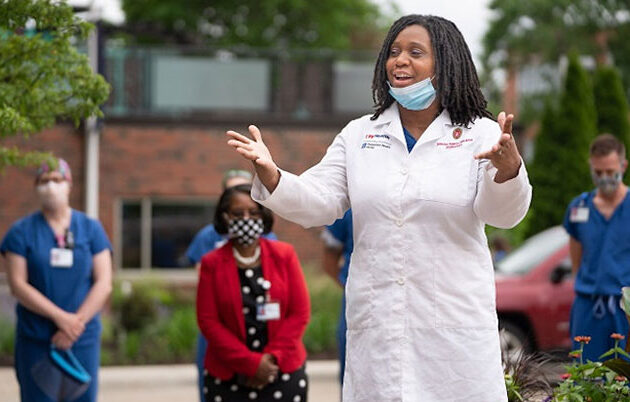In her role as research director of the Wisconsin Medicine Institute for Clinical Trials, she will join Betsy Nugent, MSPH, CCRP, director of the Wisconsin Medicine Institute for Clinical Trials, and chief clinical research officer for UW Health, in advancing the development of this endeavor supported by the school, UW Health and UW–Madison. The institute focuses on expanding clinical trials on the UW–Madison campus, creating the optimum environment for industry partnerships and investigator-initiated studies.
“I am delighted to take on this new opportunity to continue our momentum in bringing clinical trials to patients in an efficient and sustainable manner,” Safdar said. “Working with investigators and other partners to build our capacity for clinical trials is a high priority that I am particularly excited about.”
The new role builds on Safdar’s success in research and clinical trials. An expert on infections that can stem from receiving certain types of medical care, she leads multiple studies and trials on the effectiveness of fecal microbiota transplantation to reduce these infections, such as those caused by the bacteria Clostridium difficile. Among other accolades, in 2017 she earned a prestigious President’s Early Career Award for Scientists and Engineers and an NIH Director’s New Innovator Award.
Safdar has also played a leading role in advocating for community and patient safety during the COVID-19 pandemic, in addition to leading a COVID-19 prevention research study. Called SHIELD, the study is seeking to determine whether commonly used oral and nasal antiseptic, in addition to personal protective equipment and hand hygiene, can prevent infections in frontline health care and other essential workers.
Clinical trials are at the epicenter of innovation and care advancement for the University of Wisconsin–Madison and UW Health, and Safdar will play a key role in this effort, according to Robert N. Golden, dean, UW School of Medicine and Public Health.
“Dr. Safdar’s vast experience in research and clinical trials, together with her impressive track record in academic and clinical leadership roles, makes her an exceptional addition to the school’s leadership,” he said.


